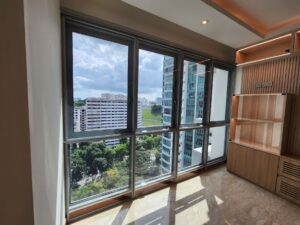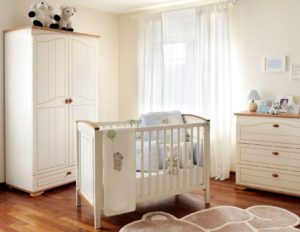
Let’s face it, noise is unavoidable. From the sounds of your television to the traffic outside your house and even your neighbor’s dog barking at night. Most of us have got accustomed to noise and can ignore it to some extent.
But what if it’s too loud to be ignored?
In the case where noise is extremely loud and harmful, it becomes noise pollution. In simple terms, it is the consistent exposure to high sound levels that can be hazardous to our physical and mental health.
Singapore is one of the few places that is said to be nearly 100% urbanized. As in all cities, there are many activities that cause noise pollution. For instance, construction in Singapore is in high demand, and there are many vehicles, people, and aircrafts. All of these contribute to prolonged exposure to noise pollution.
A study in 2017 recorded 69.4 decibels as the average daily Singapore outdoor noise level (click here to read our article explaining sound levels). According to WHO, longtime exposure to noise above 70 decibels is considered harmful to hearing and Singapore is cutting it really close. There’s definitely no better time to find a solution for noise pollution.
In this article, we will cover the effects of excessive noise to show just how much this overlooked pollution can affect people. Grab a cup of coffee and keep reading.
Noise pollution isn’t just a nuisance, it affects your physical and mental health in many ways
Hearing impairment -
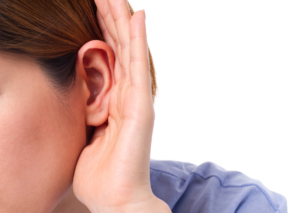
The human ear is not built to filter extremely loud noises frequently which is why Noise-Induced Hearing Loss is one of the most prevalent effects of noise pollution. This can be temporary or permanent deafness. When a construction or mining worker listens to sounds exceeding a noise level of 100 decibels everyday, their hearing will gradually deteriorate until it eventually goes. Other possible hearing impairments include tinnitus (ringing in the ears) or low sensitivity to sounds.
Lack of quality sleep -

Beauty sleep doesn’t just make people pretty, it also allows the brain to rest and heal. Imagine experiencing sleep disturbance and waking up too early because you live in a noisy environment, this will increase your stress level, especially when you have to go to work every day. Some places are so noisy that it is hard to enter deep sleep.
Cardiovascular disease -

Noise pollution can affect other parts of the body apart from the ears. Cardiovascular diseases like heart attacks, high blood pressure and hypertension can be triggered if one is exposed to loud noise for a long time. In fact, research has concluded that people with heart disease experiencing noise pollution are at high risk.
Cognitive changes -
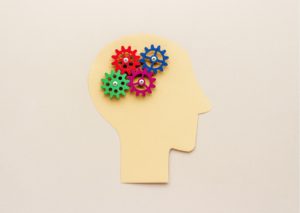
Noise can affect the ability to concentrate and focus. That’s why libraries are quiet, most people can’t read when loud music is playing. Too much noise will eventually place stress on the brain and this will reduce overall mental performance and problem solving skills. It can even affect productivity in the workplace because reduced cognition can make someone dull and slow.
Changes in behaviour -

When noise reduces sleep time and affects cognition, it can change one’s behavior. It is not uncommon for anxiety, aggression and depression to build. Anyone would feel frustrated when they can’t get some peace and quiet. In children, this may be even more pronounced because concentrating in school will be difficult and noise pollution can influence their communication and speech development.
Other health effects -
Excessive noise has been linked to headaches, nausea, fatigue, and giddiness.
Noise pollution control and protection:
Noise pollution is inevitable in Singapore because it is a busy city. Instead of experiencing some of these effects, finding a solution will make you healthier. While our soundproof retrofitting is a great way to prevent noise pollution through your windows, let’s look at other methods too:
Government regulations

The government gets involved in most countries by setting up laws to protect people from noise pollution. For instance, the National Environment Agency of Singapore set up regulatory standards for noise levels from industries, construction sites, and even vehicle owners – who are tasked with using vehicles with low exhaust noise. NEA recommends that the maximum continuous noise level should be 75 decibels for constructions and industries. Activities producing sound reaching 90 decibels can only be practiced for 5 minutes maximum. Construction work is also not allowed during certain times.
Use Earplugs
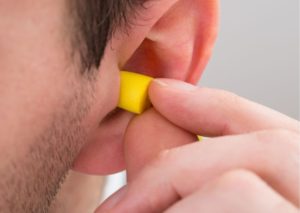
If you cannot escape the noise and you want to sleep, you can pop in some earplugs to reduce the impact of noise pollution. Sure, it’s not the most comfortable feeling but it is a quick solution.
Soundproof your windows with Magnetite Noise Shields
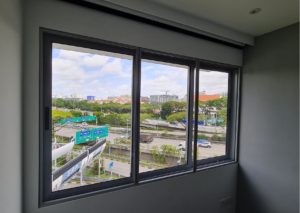
Not all homes are built to withstand heavy noise. That’s why upgrading your home to reduce noise is the smartest and easiest way to solve the problem. Install our Magnetite Noise Shields to make your windows soundproof and reduce up to 70% of sound. The best part is that you don’t have to change your windows! We work with already existing windows and glass doors, plus it is energy efficient too!
Overall, noise pollution is often overlooked but it has several negative effects that can reduce your quality of life. Using a long-term solution like retrofitting your windows will not only protect your health but your peace of mind as well.

